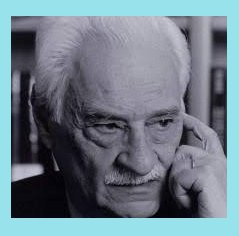RECORDANDO AL DR. HORACIO ETCHEGOYEN[1]
ENTREVISTA CON EL DR. HORACIO ETCHEGOYEN
Buenos Aires, 2014
Nos resulta conmovedor poder compartir y plasmar el encuentro que tuvimos una tarde de viernes en Buenos Aires con el Dr. Horacio Etchegoyen. Recordamos con agradecimiento su hospitalidad al recibirnos, la amena charla sobre su vida como psicoanalista, así como su calidez, generosidad y picardía que tanto lo caracterizaba. Su rigor psicoanalítico era transmitido con el respeto y la sencillez de siempre, provocándonos la sensación de estar con un colega y no con un maestro.
En este escrito vamos a compartir las ideas que nos transmitió en relación a su trabajo como analista, la ética del psicoanálisis y sus sugerencias sobre el porvenir de nuestro quehacer.
El Dr. Etchegoyen empezó a hablarnos acerca de cómo piensa el material que trae un paciente a sesión. De forma contundente nos mencionó que él va formulando sus interpretaciones dando prioridad a lo que aparece en el material del paciente y no tanto en relación a sus teorías, sino a la vivencia que tiene en ese momento con ese paciente. Él menciona:
“No pienso en teorías cuando analizo, la teoría es algo que viene después. Esto se puede entender como el significante o como la posición depresiva, pero no voy con esas ideas al paciente. Más bien me siento abierto, trato de desnudarme de las teorías. Yo podría decir que redescubro mis teorías a través de lo que pasa con los pacientes, no sé si esto es un error o un engaño. Uno tiene que responder a lo que el paciente dice o hace y a lo que uno también siente con el paciente. Cuando yo interpreto no estoy pensando en la posición depresiva, de pronto me doy cuenta que lo que yo interpreté contribuyó a que el paciente entre en posición depresiva. Es decir, para escribir tengo en cuenta las teorías pero con los pacientes no. Cuando escribo también tengo en cuenta las otras teorías. En mi libro están varias teorías, incluso críticas que yo hice, hay incluso críticas a Melanie Klein. La clínica psicoanalítica es muy rica y muy compleja. Enfrentar las teorías en el consultorio, me parece que es un error” (...) Seguir leyendo...
INTERVIEW WITH DR. HORACIO ETCHEGOYEN
Buenos Aires, 2014
We would like to share the meeting we had on a Friday afternoon in Buenos Aires with Dr. Horacio Etchegoyen. We remember with gratitude his hospitality when he receiving us, the conversation about his life as a psychoanalyst, and above all, we remember his warmth, generosity and mischief that characterized him. His psychoanalytic rigor was transmitted with the respect and simplicity of always, giving us the feeling of being with a colleague instead of a teacher.
In this writing we are going to share the ideas that he transmitted to us in relation to his work as an analyst, the ethics of psychoanalysis and his suggestions about the future of our work.
Dr. Etchegoyen started talking about how he thinks the material´s patient in a session. He mentioned that he formulates his interpretations according to the clinic and not with his theories; although he recognizes that he has them. He mentioned:
“I don't think about theories when I analyze, the theory is something that comes later. This can be understood as the signifier or the depressive position, but I don't go with these ideas to the patient. I rather feel open-minded, I try to undress from the theories. I could say that I rediscover my theories through what happens to patients, I don't know if this could be a mistake. But I think that one has to respond to what the patient says or does and to what one also feels with the patient. When I interpret I'm not thinking about the depressive position, I suddenly realize that what I interpreted contributed to the patient entering the depressive position. That is, to write I take into account the theories but not when I'm with the patients. When I write I also take into account the other theories. In my book there are several theories, including criticisms that I made, there are even criticisms of Melanie Klein. The psychoanalytic clinic is very rich and very complex. Confronting theories in the office, I think it's a mistake” (...) Continue reading...
---------------------------------------------------------------------
Notas:
[1] R. Horacio Etchegoyen se recibió de médico en la Universidad Nacional de La Plata. Miembro titular y analista didacta de la Asociación Psicoanalítica de Buenos Aires (APdeBA). Fue el primer Presidente de APdeBA, 1977-1978. Fue un analista prolífico tanto en la docencia como en sus escritos. Fue profesor de la cátedra de Psiquiatría y Psicología Clínica (Universidad Nacional de Cuyo). Miembro honorario de la Sociedad Psicoanalítica de Mendoza. Doctor Honoris Causa por la Universidad Nacional de San Luis. Ex presidente de APdeBA. Ex presidente de la International Psychoanalytical Association (IPA) período 1993-1997. Autor de numerosos artículos como: Las vicisitudes de la identificación. Su libro Los fundamentos de la técnica psicoanalítica fue traducido al inglés, portugués, italiano y francés.
R. Horacio Etchegoyen received his medical degree from the National University of La Plata. Full member and didactic analyst of the Buenos Aires Psychoanalytic Association (APdeBA). He was the first President of APdeBA, 1977-1978. He was a prolific analyst in both teaching and writing. He was professor of the chair of Psychiatry and Clinical Psychology (National University of Cuyo). Honorary member of the Mendoza Psychoanalytic Society. Doctor Honoris Causa from the National University of San Luis. Former president of APdeBA. Former president of the International Psychoanalytical Association (IPA) period 1993-1997. Author of numerous articles such as: The vicissitudes of identification. His book The Foundations of Psychoanalytic Technique was translated into English, Portuguese, Italian and French.
Fuente: https://www.sigourneyaward.org/recipientlist/2019/3/6/r-horacio-etchegoyen-md-1999
[2] Fotografía en: https://www.apdeba.org/event/ateneo-recordando-a-horacio-etchegoyen/
[2] Fotografía en: https://www.apdeba.org/event/ateneo-recordando-a-horacio-etchegoyen/

Buenas! Qué interesante la figura de Etchegoyen. Un orgullo que haya sido el primer argentino presidente de la IPA. Soy estudiante de psicología y me interesan muchos los contenidos del blog. Muchas gracias por compartirlo. Saludos!!
ResponderEliminar